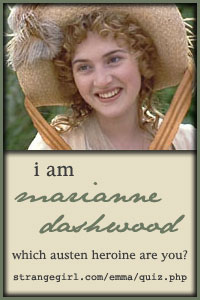
Rating: 

Genre: Nonfiction, Parenting, Toddlers
Reading Challenges: 4 for 100+ in 2009
These days, it seems as though every book written by a doctor has a catchy gimmick designed to grab the interest of the reader. This book was no exception, as on the back cover Dr. Karp lovingly refers to toddlers everywhere as pint-sized cavemen. Since I am currently in the throws of the toddler years, I had to agree with Dr. Karp, as there are days that my little one happily wreaks destruction. Lest you think that Dr. Karp is somehow being insulting, let me assure you that it is very evident that not only does he enjoy toddlers and find them fascinating, but that he respects them as well. The point of all the prehistoric talk is really just a clever way to point out the differences that exist between the thought processes of an adult and a child (ages 1 to 4).
Dr. Karp's premise is that in the first four years of life your child will accomplish huge developmental milestones as their brains grow and develop. He divides the ages into four groups: The Charming Chimp-Child (12 to 18 Months), The Knee-High Neanderthal (18 to 24 Months), The Clever Cave-Kid (24 to 36 Months), and The Versatile Villager (36 to 48 Months). Each of these groupings is actually a pneumonic used to describe the highlights of that particular age grouping, for example Cave-Kid's are:
C= Curiouser and curiouser
A= Attention Increases
V= Very Busy
E= Enjoys Pleasing You
K= Kinder
I= Interested in Order and Comparisons
D= Determined to Communicate
Dr. Karp also enourages adults to speak to toddlers in their own language, or what he refers to as "Toddler-ese." Basically, the idea is that when a child is upset it is pretty pointless to try and talk to them as little adults. He offers basic tips on communicating more effectively with your toddler, and I found that many of these tips were good communication pointers in general.
I took my time reading this book as I was anxious to give his suggestions a try. Many of them actually worked! It was a little embarrasing speaking "Toddler-ese" in public, but Dr. Karp makes a good point that when your child is in the midst of a tantrum, you usually feel that you are the center of attention anyway. Most of all, I really enjoyed reading this book as it was fascinating to think about all the things my little one has already accomplished and all she will continue to accomplish. If you have young children, or spend a lot of time with the 1 to 4 set, then I can't recommend this book highly enough.

 : I liked this book, and might even get around to reading it again sometime. Highly recommended.
: I liked this book, and might even get around to reading it again sometime. Highly recommended. : I liked this book. It was an enjoyable read, but it doesn't necessarily stand out. Try it, you might like it.
: I liked this book. It was an enjoyable read, but it doesn't necessarily stand out. Try it, you might like it. : I didn't like this book, and I can't really recommend it.
: I didn't like this book, and I can't really recommend it. : I loathed it! The world would be a better place without this book.
: I loathed it! The world would be a better place without this book.


Whoop